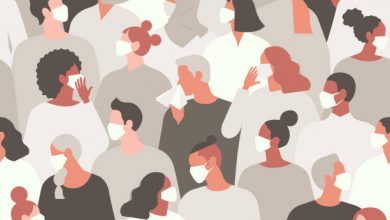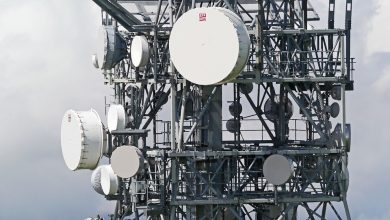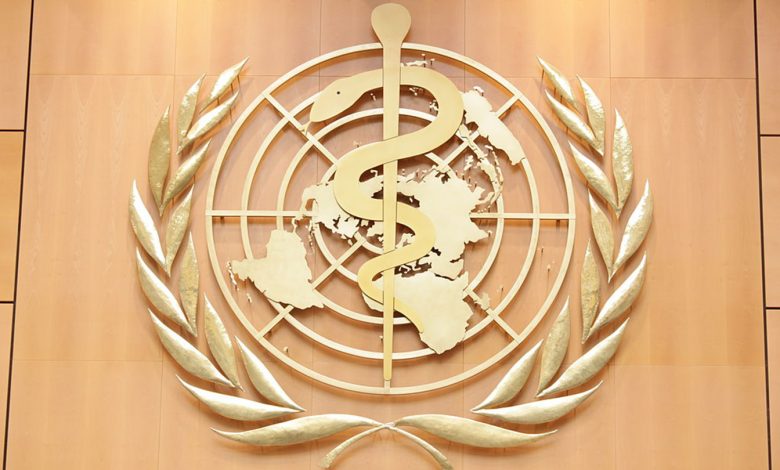
Misinformation and COVID-19: An Ongoing Online Battle
Beyond the frontlines of our hospitals lies another battleground that we don’t really think too much about. Information is key in our fight against the pandemic. With our continued social isolation, we have turned even more to the greatest source of information humanity has ever had: the internet. Here is where the battle against misinformation and COVID-19 is waged, and we must be conscious of our part in it.
We previously talked about the changes to the Philippine Tech Landscape in the time of the pandemic. This time, our focus will be on a more global scale. The “internet landscape” has changed rapidly in the course of the year, in order to adjust to the challenges brought about by COVID-19. The changing internet is a reality that is being faced by everyone around the world. This is true maybe even more so for us Filipinos, given the amount of time we spend online.
This is a huge topic with quite a lot of things to unpack. However, the aim is to lay the foundations and let you, the reader, decide what you want to do with it. We have a responsibility in this day and age to be better “digital citizens”. Hopefully the insights you get from this article would be applicable to the rest of your digital life as well.
A Difference in Intent: Misinformation Versus Disinformation
The conversation starts with a very important distinction between misinformation and disinformation.
The United Nations Educational, Scientific and Cultural Organization (UNESCO) has a very clear definition of the difference between misinformation and disinformation. Both are information that is false. However, the difference is in the intent. Disinformation is done deliberately, and is created “to harm a person, social group, organization or country”. Misinformation is just wrong information, without that harmful intent.
Disinformation exists in a lot of other types of communication online. However, when talking about the pandemic, the main thing we are fighting against is misinformation.
We’d like to think that no one is spreading false information about a life-threatening disease with the express intention to hurt people. It’s safe to assume that people share whatever information resonates with them in order to help and inform others. However, we’re not denying that there are some people who have their own vested interests. There are some who intentionally share the wrong information for their financial gain. That’s where it gets more complicated.
The problem comes from the very strength that the internet has in the first place: immediate access to a wealth of information, and the almost instantaneous way we get to share that with the world. This is the stage of our fight with misinformation and COVID-19.
An Ongoing “Infodemic”
The World Health Organization (WHO) calls it an “infodemic“. In this joint statement with other global organizations like UNESCO and the United Nations (UN), the WHO said that COVID-19 is “the first pandemic in history in which technology and social media are being used on a massive scale to keep people safe, informed, productive and connected.”
However, this technology that we rely on “is enabling and amplifying an infodemic that continues to undermine the global response and jeopardizes measures to control the pandemic.” As the WHO explains, an infodemic is an “overabundance of information, both online and offline”.
“Misinformation costs lives. Without the appropriate trust and correct information, diagnostic tests go unused, immunization campaigns (or campaigns to promote effective vaccines) will not meet their targets, and the virus will continue to thrive,” said the WHO.
In the same statement, they then call on their member states and other stakeholders to actively work on solutions to limit the spread of mis- and disinformation. And it seems that everyone is on the same page.
A Concerted Worldwide Effort
You may have noticed it in the tail end of 2020. We are actually making decent headway in our fight against misinformation and COVID-19. There is now a concerted worldwide effort to control the spread of misinformation. Leading the charge are the tech giants. We see search engines and social media sites actively pushing for information on COVID-19 that comes from legitimate sources.
A quick google search for “COVID-19” would immediately give you news and information from credible sources that is relevant to your locale. What’s even interesting is that if you do a Facebook search on the terms “COVID-19” or even “Vaccine”, they will point you to legitimate sources, and actually even limit your exposure to posts:
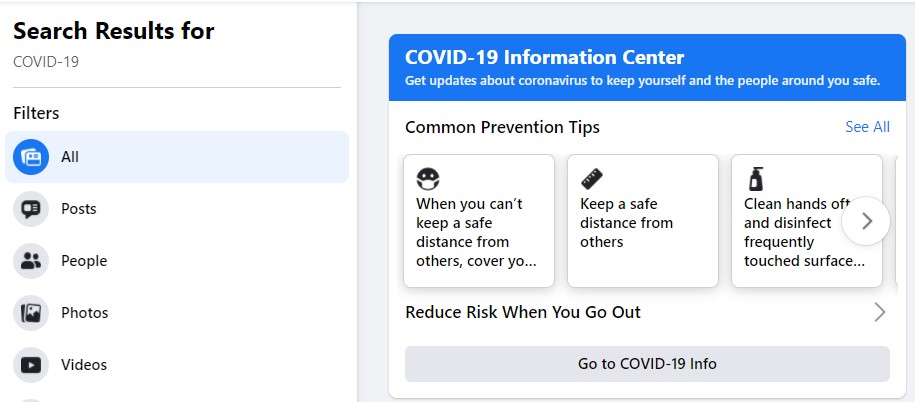
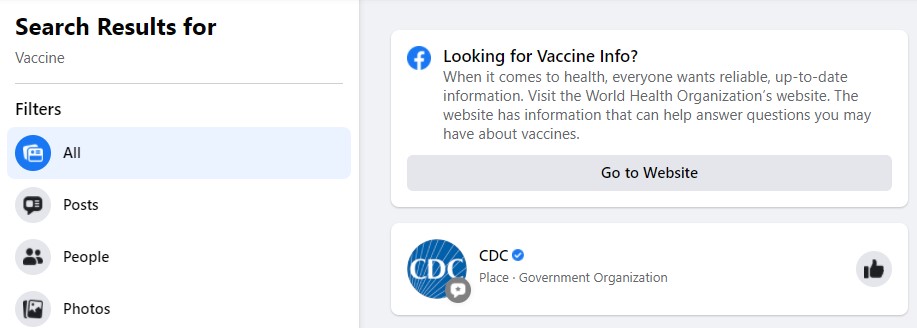
This would prevent you stumbling upon just some random person posting about information on COVID-19. This is good because it limits the spread of misinformation, and amplifies the reach of information from credible sources.
In addition, Google, Facebook, Twitter, and Youtube are all taking active steps in addressing misinformation on vaccines on their platforms, which equate to a huge chunk of all activity on the internet.
A Call to Action
However, the fight is far from over. It’s only just begun, and the onus is not completely on just these tech giants. We must also do our part. We have to be mindful of our online habits and check which type of information we share and amplify. Check the sources of the information you share. Trust only legitimate sources like the WHO and our very own Department of Health (DOH).
Another good rule of thumb is whenever you see a social media post that quotes a supposed “expert” on the subject, do a quick Google search on the person. This way, you will see if the person really has the credentials and the authority to talk about the subject matter.
And finally, be respectful and facilitate conversation whenever engaging with people who are obviously spreading misinformation on the pandemic (like masks don’t work, or that the pandemic isn’t real – there is overwhelming scientific evidence to disprove both of this).
It could be a stranger – but this is even more important for a family member or for close friends. Think of them as victims of disinformation, spreading misinformation. “Cancel Culture” doesn’t work for situations like this. Easier said than done of course, but it is our duty to inform and educate each other. The only way we can get out of this alive is to combat misinformation and COVID-19 on all fronts – including the internet and our interactions in it. Together.



